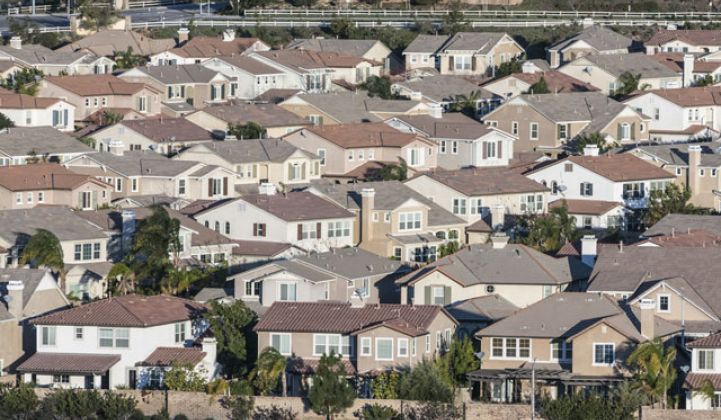If you’re worried about climate change, you might be better off staying at home rather than rushing out to do something about it, research suggests.
A study due for publication next month concludes Americans may have reduced national energy demand by 1.8 percent between 2003 and 2012 just by going out less.
The analysis of American Time Use Survey results found that an aging society and changes in information technology had led U.S. citizens to spend 7.8 more days at home a year, on average, in 2012 compared to 2003.
The shift had increased home energy use by 480 trillion British thermal units (Btu) but at the same time avoided a quadrillion Btu in travel and 1.2 quadrillion Btu in workplace energy consumption, resulting in a net energy reduction of 1.7 quadrillion Btu.
This is roughly equal to the annual energy consumption of a couple of states the size of Kentucky, said the study’s lead author, Ashok Sekar, a postdoctoral fellow in the Energy Systems Transformation Research Group at the University of Texas at Austin.
The energy savings from travel reductions are easy to understand, since most transport essentially involves burning fuel to get from one place to another. According to the study, Americans were traveling 1.2 days a year fewer in 2012 than they were in 2003.
What is slightly more counterintuitive is the amount of energy saved by not going to work, since conventional wisdom dictates that having many people working together in a single building should be more efficient than having them spread out over numerous dwellings.
However, said Sekar, this potential efficiency is offset by the fact that the average worker only spends 5.5 hours a day in the workplace, so on a per-hour basis they consume more than they would if they stayed at home.
And the average amount of time at home increased significantly between 2003 and 2012, the research found. The advent of more flexible working practices meant workers were spending 6.7 days fewer a year in the workplace at the end of the study period.
“At the national scale, this research shows that time-based models would improve energy forecasts by capturing behavioral changes that current models fail to capture,” concluded the study.
“Knowledge of such lifestyle trends can help prioritize energy efficiency policies of federal and state governments and utilities," the study states. "For individuals, the research raises awareness of connections between lifestyle and energy use.”
Sekar told GTM the study highlighted the important role that residential energy-efficiency programs could play in cutting greenhouse gas emissions, even though such programs face an uncertain future under the Trump administration.
In 2019 budget proposals released this week, for example, the Energy Star national energy rating scheme would be converted to a fee-based program, wherein companies pay to use the label.
Elsewhere, the research contains potentially important lessons for city planners. “We can find out what type of businesses are going down because of this evolution, and try to think more about repurposing those buildings,” Sekar said.
A failure to address this problem could lead to commercial and industrial real estate being developed in places where the demand for it is faltering, he noted.
Finally, the analysis illustrates the potential benefit of decarbonizing transport systems, for example by moving to electric vehicles powered by renewable energy.
In 2003, the research team found, the average U.S. citizen was spending 1.3 hours a day moving from place to place.
While lifestyle changes, on aggregate, clearly have an impact on energy use, it is still unclear whether they are a significant factor compared to others such as the price of oil or the strength of the economy.
Andy Bradley, director at Delta Energy & Environment, a European consultancy, is skeptical. “I can’t help thinking the effect they are talking about is just noise," he said. "Other factors, like price or weather, will be primary drivers on energy consumption.”
Nevertheless, “it remains the case that policy needs to encourage maximum energy efficiency in homes," said Bradley. "Without that, we will struggle to achieve a carbon-free world.”




